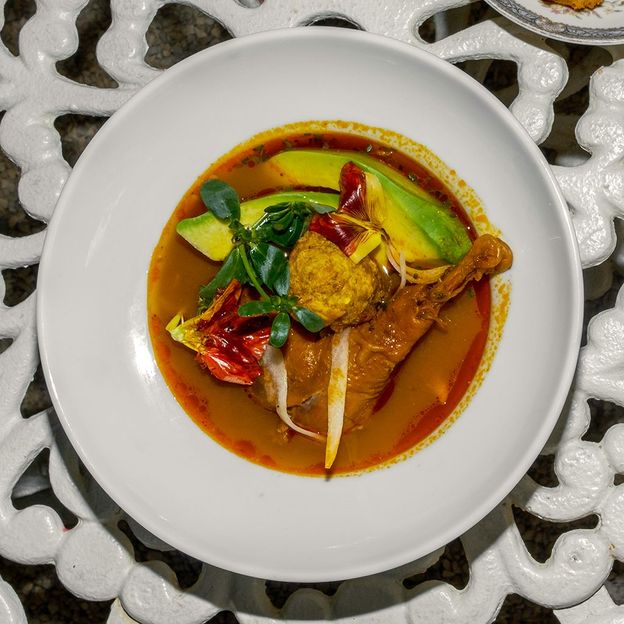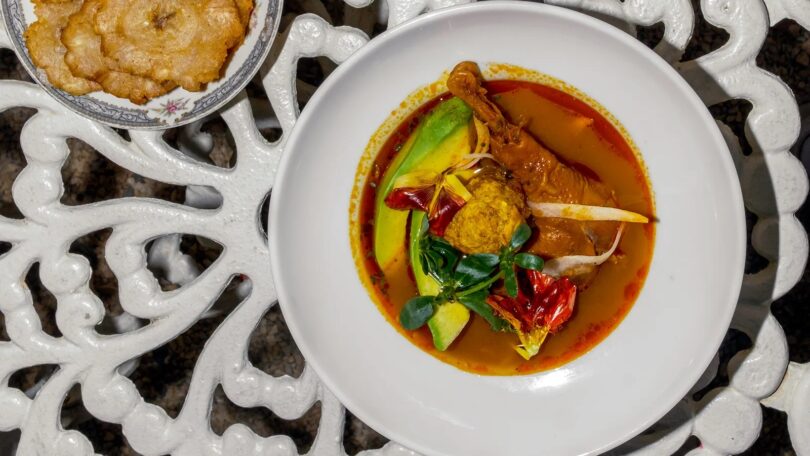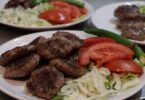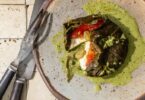Kathleen Squires
Puerto Rico is world-renowned for its gorgeous beaches, top-tier musicians and fine rum. Now, in 2023, the island is finally receiving major awards for its cuisine. This was the year for Boricuas (people of Puerto Rican birth or descent) at the James Beard Foundation Awards, which honours the US’s top chefs, restaurants, cookbook authors and food journalists.
At the ceremonies in early June, 43-year-old San Juan restaurant Casita Blanca received an “America’s Classics” nod; food writer Illyanna Maisonet took home the “Emerging Voice” award for her cookbook Diasporican thatexplores Puerto Rican cooking stateside; and Natalia Vallejo of Cocina al Fondo in San Juan earned the award for “Best Chef South” over chefs from Louisiana, Florida, Mississippi and Alabama. She is the first Puerto Rican woman to be nominated for this specific award, and the first Puerto Rican ever to have won. “It is a proud and celebratory moment that recognises the dignity of our cooking,” Vallejo said.
[jump to recipe]The moment has been long overdue. Even though the James Beard Foundation Awards were established in 1990, Puerto Rico was not included in the chef and restaurant awards until 2012. Chefs from the island have garnered nominations every year since. “Including Puerto Rico was a positive change,” Vallejo said. “And these wins show how the Foundation is becoming more inclusive. They found the key to unlock the door to the diversity in this country and are making a big impact by recognising so many diverse chefs.”
Cocina al Fondo translates to “kitchen in the back”, as the restaurant’s original location was in the rear of an art and performance space when it opened in 2018. In 2022 it moved to its current home within a classic Spanish-revival casita. The island’s agriculture inspires the menu, and Vallejo is part of a growing movement to propagate farming in Puerto Rico by creating renewed demand for local products.
“Farmers grow and create plans of seeding especially for us based on our demand,” Vallejo said. “We also support them by trying to buy everything they have on hand, especially items they have in abundance so that the product does not get wasted.”
Support from chefs like Vallejo not only allows farmers to grow with security, it helps the island’s food system become less dependent on imports. “My mission in collaborating with farmers and producers is to raise awareness that we have power as consumers to activate the local economy,” said Vallejo.
Though Vallejo’s menu changes depending on the season and what she sources, diners at Cocina al Fondo can count on connecting with the traditions and flavours of the island. Vallejo’s favourite ingredients include lerenes, a small tuber that tastes like a cross between a fingerling potato and a water chestnut; rabbit, one of the most sustainable meats on the island, which she likes to serve stewed with rice or as albondigas (meatballs); and heirloom beans, which she often simmers with apio (celery root). Even the cocktail list, created by her partner, Karla Z Torres, focuses on seasonal produce, highlighting uncommon fruits such as grosella, a tropical gooseberry, and quenepa, a relative of the lychee, grown right in the restaurant’s back garden. The bar also serves a selection of locally produced liquors.
When asked which dish she considers her signature, Vallejo didn’t hesitate to answer: caldo de gallina, hen soup. She describes it as an ancestral dish, made entirely with local ingredients – a taste of the countryside that she serves in the city. “It also represents the tradition of women cooking in front of the fire together with their ollas, our traditional pots,” she said.
Her recipe features country hen, known for making a rich broth; recao (aka culantro or sawtooth coriander), a deeply fragrant herb that is the mark of Puerto Rican cuisine; annatto (a seed from the achiote tree), which lends the soup a vibrant gold colour; and mofongo balls, twice-fried green plantains mashed and formed into garlicky spheres, which adds heartiness to the mix. Garnishes of chayote squash and avocado add additional texture. This comforting soup is an expression of the essence of award-winning Puerto Rican cooking, and surprisingly easy to make, too.

Caldo de gallina is a rich hen soup with herbs and garlicky plantain balls (Credit: Javier Piñero)
Caldo de Gallina recipe
By Natalia Vallejo
Serves 6
Method
Step 1
Pat the hen dry and season with salt. To a large pot, add the hen, recao, peppers, garlic, onion, annatto, coriander, oregano and season with salt. Add water to cover and bring to a boil.
Step 2
Reduce the heat to medium-low and cook for 3-4 hours, until the meat falls off the bone. Remove the hen and strain the soup; discard the solids. Shred the meat and add it back to the soup. Season to taste with salt and keep warm.
Step 3
Add 2½cm (1in) of olive oil to a large skillet and heat to 160C/320F. Peel the plantains and slice into 2½cm (1in) rounds. Add to the oil and fry for 4 minutes, until easily pierced with a knife. Remove from the oil and drain on kitchen paper. Keep the oil over a very low heat while you form the mofongo balls.
Step 4
In a mortar, crush the garlic cloves and a pinch of salt with a pestle until it forms a paste. Add the plantains and mash until well combined. Add more salt to taste. Form the plantain mash into golf ball-sized rounds.
Step 5
Bring the oil back up to 160C/320F. Add the mofongo balls to the hot oil and fry for 2 minutes, turning after the first minute, until they are a deep gold colour. Drain on kitchen paper.
Step 6
Ladle the soup into bowls. Add the mofongo balls and garnish with sliced avocado and chayote.
Courtesy: BBC







